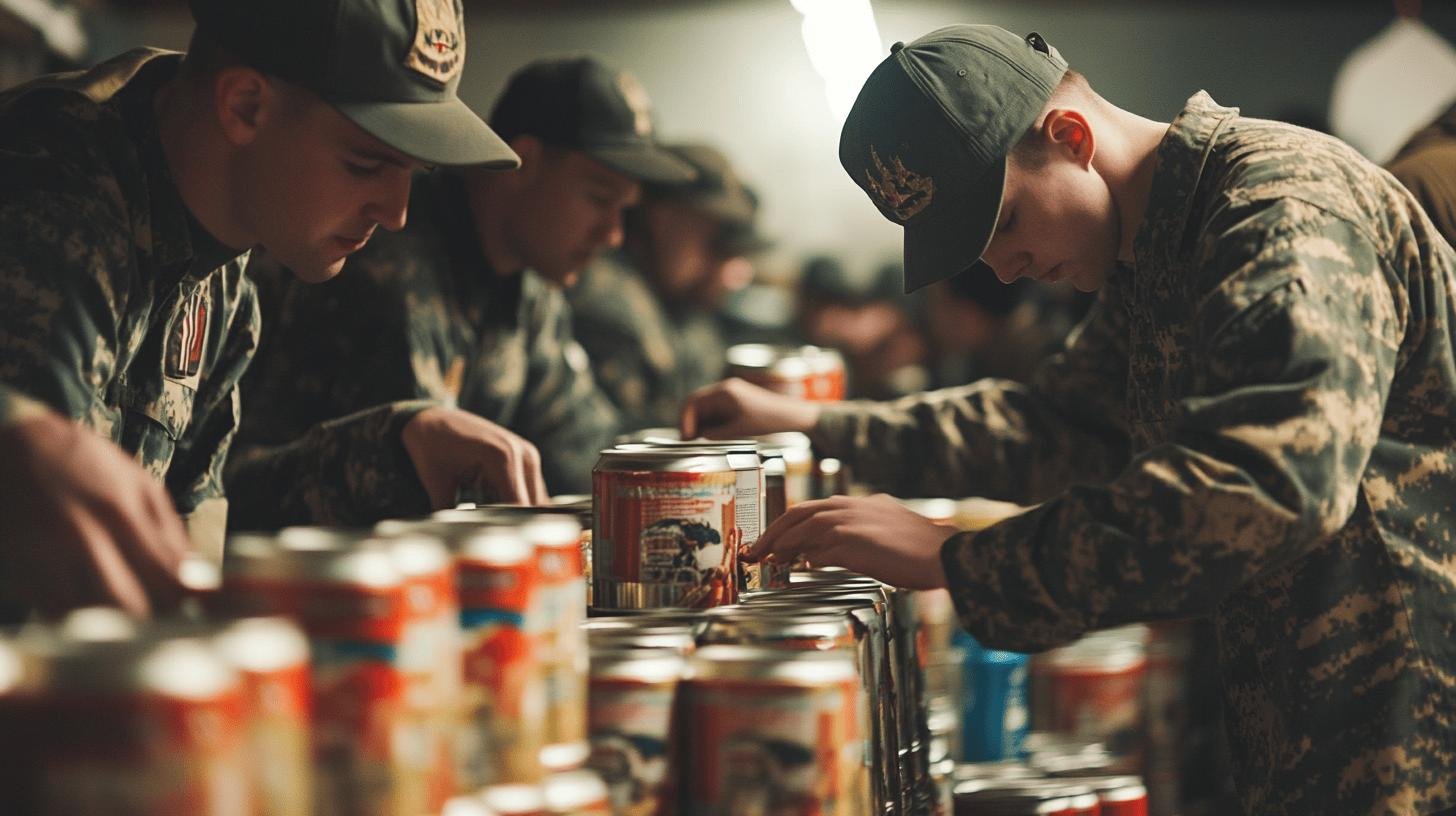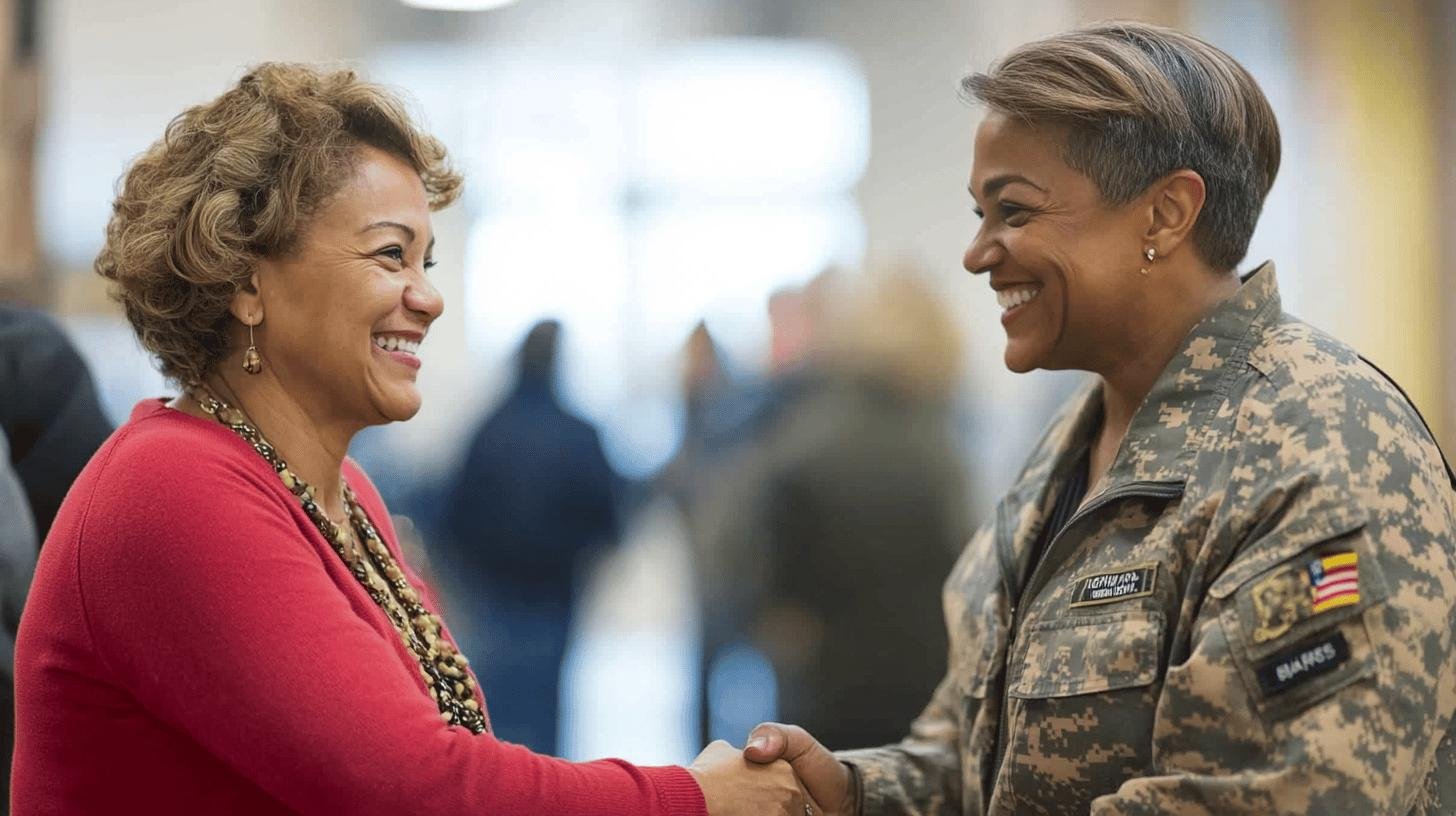TL;DR:
- Veterans leverage skills from military service for community engagement through organizations like Wounded Warrior Project and Team Rubicon.
- Volunteer roles include education, mentorship, disaster response, and community projects, benefitting both veterans and communities.
- Civilians can support veterans by volunteering, donating, attending events, and promoting initiatives.
- To start community programs, veterans should identify local needs, network, seek mentorship, secure funding, and partner with businesses.
- Challenges include funding and building trust, but benefits include personal fulfillment and strengthened community bonds.
Did you know veterans are some of our greatest community champions? After serving their country, many transition to serve their communities, using their unique skills and experiences.
This article delves into how veterans engage in community service, from organizing impactful initiatives to volunteering in schools. With the backing of organizations like the Wounded Warrior Project and Team Rubicon, veterans leave a mark on neighborhoods across the nation.
What drives this commitment, and how does it reshape communities? Let’s uncover the positive footprint veterans continue to leave on our landscape.
Veterans Giving Back to the Community: An Overview
Veterans often transition from military service to community service, applying valuable skills and experiences to new roles. This shift allows them to continue serving, using leadership and discipline to meet local needs. Their service evolves into diverse forms of community engagement beyond military discharge.
- Wounded Warrior Project
- Team Rubicon
- The Mission Continues
- American Legion
- Warrior Allegiance
Veterans positively impact communities through volunteer activities that promote development and growth. They engage in projects ranging from disaster relief to mentoring youth. Partnerships with groups like Team Rubicon and the American Legion amplify their contributions. These efforts benefit communities and provide veterans a renewed sense of purpose and a chance to use their skills for good causes.
Successful Veteran-Led Initiatives

Veterans are pivotal in driving community improvement via initiative leadership. Their military training offers skills in organization, teamwork, and problem-solving, making them effective leaders. Initiatives often address significant issues, aiming for lasting impacts.
Examples of veteran-led initiatives include disaster relief and homelessness assistance. Team Rubicon uses veterans’ unique skills for rapid disaster response. They provide critical aid and support in affected areas. To combat homelessness, veterans organize projects to build homes and supply essential resources. Their dedication to community welfare is evident.
Both veterans and communities benefit from these initiatives. Veterans experience personal growth by applying skills to impactful projects. Communities enjoy the improvements and support these efforts bring. This mutual relationship strengthens community bonds and highlights veterans’ positive impact beyond military service.
Volunteer Opportunities for Veterans
Volunteering allows veterans to apply their skills in new settings, enhancing personal growth and community ties. Veterans have unique experiences that are valuable in various sectors. Engaging in volunteer work helps maintain a sense of purpose and continues their service to others. This involvement benefits mental well-being and community connections.
Veterans can fill many volunteer roles, using expertise in mentorship, education, and community-building. Programs like GIVEN provide mentorship opportunities for veterans to guide youth in leadership and development. Veterans can assist in schools, supporting education and enriching student learning experiences. Organizing local events and engaging in community projects help veterans improve neighborhoods and social cohesion.
| Volunteer Sector | Type of Contribution |
|---|---|
| Education | Assisting teachers and tutoring |
| Mentorship | Guiding youth in leadership skills |
| Community Projects | Organizing local events |
| Disaster Response | Providing aid and logistical support |
These opportunities show how veterans remain active, positive forces in their communities, using backgrounds to make meaningful contributions.
How Civilians Can Support Veteran Community Efforts

Civilians play a crucial role in boosting veteran-led initiatives. Civilian support is vital as it brings resources, connections, and perspectives that enhance veterans’ efforts. Joining forces allows tackling community challenges more effectively. Civilian involvement extends veteran program reach and fosters unity.
- Volunteer alongside veterans
- Donate to veteran-focused charities
- Attend veteran-organized events
- Promote veteran initiatives locally
- Partner with veteran organizations
Collaboration benefits both parties. A strong bond between veterans and civilians fosters a cohesive community. Sharing experiences and resources brings mutual benefits. Civilians learn about veterans’ unique skills and perspectives, while veterans gain from civilian support and community engagement. This partnership leads to sustainable and impactful community projects.
Steps for Veterans to Start Their Own Community Programs
Veterans should first identify local needs and use military networks to start community programs. This involves assessing community areas for improvement and leveraging connections to gather support and resources. Veterans can apply military experiences in leadership and organization to plan effective solutions.
- Identify local community needs
- Network with existing organizations
- Seek mentorship and guidance
- Use veteran-specific resources
- Apply for grants and funding
- Partner with local businesses and stakeholders
Veterans face challenges such as securing funding and building community trust. However, rewards are substantial. Creating programs that address real needs provides personal fulfillment and renewed purpose. It also enhances community well-being and strengthens veteran-civilian bonds. These initiatives result in thriving communities with better resources and support systems.
Final Words
Veterans play a vital role in our communities, applying their military skills to make lasting improvements. Through volunteering, mentoring, and organizing impactful projects, they continue their service in meaningful ways.
Civilians can amplify these efforts by supporting veteran-led initiatives. Together, veterans and community members can make a positive impact, inspiring future generations to contribute to a better society.
FAQ
How can I volunteer to help veterans in my area?
Contact local veteran groups like the Wounded Warrior Project or Team Rubicon to find opportunities near you.
What charities best support veterans?
Organizations like the Wounded Warrior Project and The Mission Continues provide essential programs for veterans.
What do VA volunteers do?
VA volunteers help with healthcare, administrative tasks, and events, improving veterans’ lives and well-being.
Why are veterans important to our community?
Veterans use their unique skills to lead initiatives, mentor youth, and enhance local development.
How can I honor veterans in the community?
Honor veterans by volunteering, supporting their projects, and attending appreciation events.

